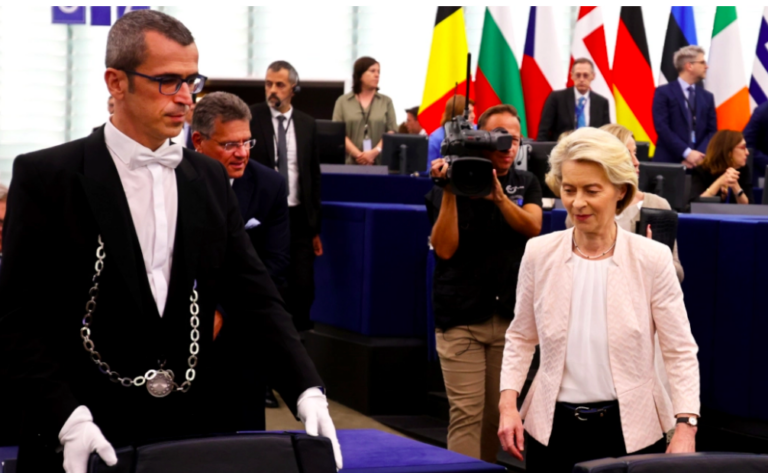Until recently, the European Union’s health department enjoyed special attention, especially after the COVID-19 crisis, when it received an additional €5 billion in funding and established a new agency for health crisis response. At that time, Health Commissioner Stella Kyriakides, with four decades of experience in the health sector, led the efforts. However, today, as member states compete for the top positions in the European Commission, the role of Health Commissioner seems to be lagging, attracting little interest.
According to an analysis by Politico, the position is likely to be assigned to a smaller EU member state with neither interest in the portfolio nor experience in the health sector. The European Public Health Alliance (EPHA), based in Brussels, warns that “the lessons about the importance of health seem to have been forgotten as Europe attempts to move past the pandemic.”
With the COVID-19 pandemic starting just weeks after the current Commission took office in 2020, health policy became a top priority on the European agenda. However, with new challenges such as funding and defense demanding attention, health is losing ground, raising concerns that the next Health Commissioner may lack the experience needed to handle crucial issues such as tobacco and vaping policies, as well as revising pharmaceutical industry regulations.
The two main candidates for the Health Commissioner post have already dropped out of the race. Belgian Health Minister Frank Vandenbroucke, a favorite among anti-smoking groups, withdrew his candidacy when Belgium decided to follow Commission President Ursula von der Leyen’s call to nominate a female candidate. Another potential candidate, former Maltese Health Minister Chris Fearne, was also a contender but his candidacy was withdrawn after being involved in a scandal related to fraud at a public hospital.
Another name being considered is that of Costas Kadis, former Health Minister of Cyprus, although he prefers the role of Commissioner for the Mediterranean. Croatian candidate Dubravka Šuica is also seen as a possible option, mainly due to her position as Vice President of the Commission, despite having little experience in health.
In addition to the lack of experience among candidates, there are concerns over cuts in health funding. Member states have decided to reduce the EU4Health program by €1 billion from the original €5.3 billion to redirect resources to support Ukraine. This program has funded initiatives like research into long COVID and efforts to retain healthcare workers. Although the program will continue until 2027, there is a risk it may not be renewed, symbolizing the gradual decline of health on the European agenda.
Many express concern over these cuts. European People’s Party (EPP) lawmaker Tomislav Sokol said that cuts to EU4Health send the wrong message, stressing that health should remain a priority. Former Health Commissioner Vytenis Andriukaitis also stated that Europe must maintain the momentum gained during the pandemic.
In the European Parliament, health policy appears to be losing importance, despite the creation of the SANT subcommittee on health in 2023. However, this committee lacks legislative power and functions more as a discussion platform, while real power remains with the ENVI committee, which combines health with climate and other policies. Despite pressure from the center-right to transfer responsibilities to SANT, left-leaning and center-left forces warn that this would further marginalize the health agenda.
The rise of right-wing populism in recent European elections adds another layer of uncertainty. The new far-right MEPs are using health committees to push extreme views, accusing the EU of misinformation during the pandemic, which has led to tensions in discussions.
Despite concerns about the experience of the new candidates, some believe that the true importance of health policy will be shaped by Ursula von der Leyen herself, who has made the fight against cancer a priority during her previous term. The European Commission has also planned initiatives on chemicals and improving cybersecurity in hospitals.
Ask me anything
Explore related questions





